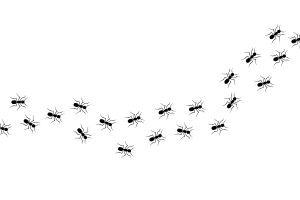When we think about increasing the value of a property, our minds often jump to renovations, landscaping, or interior design. However, there’s a less obvious but equally significant factor that many homeowners and property investors overlook: pest control. The presence or absence of pests in a property can dramatically impact its value, making pest control services a key player in the real estate market.
Table of Contents
The Direct Impact of Pests on Property Value
The detrimental effect of pests on a property’s value is more pronounced than one might initially think. Pests, ranging from termites and rodents to cockroaches and bed bugs, can cause substantial damage to a property’s structural integrity and aesthetic appeal, according to evolvenv.com. This section explores how various pests can devalue a property and the importance of residential pest control in maintaining and enhancing property value.
Termites: The Silent Destroyers
Termites, often referred to as ‘silent destroyers,’ can cause havoc on a property. These pests primarily feed on wood, but they can also damage paper, books, insulation, and even swimming pool liners and filtration systems. Termite damage is particularly insidious because it’s often not visible until substantial damage has been done. The financial impact? Billions of dollars in property damage annually, a cost usually not covered by homeowners’ insurance.
Rodents and Structural Integrity
Rodents like rats and mice can chew through wiring, insulation, and wood, posing a fire hazard and weakening a building’s structural integrity. Their presence can also lead to health hazards, as they are known carriers of diseases. The cost of repairing the damage caused by rodents, coupled with the health risks they pose, can significantly decrease a property’s market value and appeal.
Insects: More Than Just a Nuisance
Cockroaches, ants, and bed bugs, while smaller in size, can have a large impact. Cockroaches and ants can contaminate food and surfaces, posing health risks and potentially leading to costly pest control treatments. Bed bugs, on the other hand, can infest entire buildings, leading to expensive extermination processes and damaging the reputation of rental properties or businesses like hotels.
The Psychological Impact: Perception is Reality
The psychological impact of pests should not be underestimated when considering property value. A home or building known to have a pest problem can be stigmatized, making it less attractive to potential buyers or renters. This stigma can linger even after the issue is resolved, as the perception of an infestation can be as damaging as the actual presence of pests.
Case in Point: Real Estate and Pest Control
In the real estate market, the presence of pests can be a deal-breaker. During home inspections, evidence of pest infestations can lead to reduced offers or even cause potential buyers to back out of deals. On the other hand, properties with regular pest control maintenance stand out as well-cared-for investments, attracting higher offers and more interest.
A Personal Insight: The Deal That Almost Wasn’t
I recall working with a client who was on the verge of closing a lucrative deal on their property. However, during the final inspection, the buyers found signs of a recent termite infestation. The initial offer was significantly reduced, reflecting the cost of potential repairs and pest control treatments. This situation underscores the crucial role of pest control in preserving and enhancing property value.
Integrating Pest Control into Property Management
Proactive pest control is essential in preserving and enhancing the value of your property. Regular inspections and treatments are not just for addressing current infestations but also for preventing potential future problems. This approach demonstrates to potential buyers and tenants that the property is well-maintained, potentially leading to higher property values and rental rates.
Building a Pest-Free Reputation
For rental properties and businesses like hotels, a reputation for cleanliness and pest-free environments can be a significant market differentiator. In an era where online reviews can make or break a business, ensuring that your property is free of pests is crucial. Regular pest control can help avoid negative reviews related to pest issues, thereby protecting and potentially increasing the property’s marketability and value.
The Role of Professional Pest Control Services
While DIY pest control can be tempting, professional pest control services offer expertise and thoroughness that go beyond superficial treatments. Professionals can identify the root causes of infestations, provide more effective and long-lasting solutions, and offer warranties on their services. This level of professionalism and effectiveness can be a selling point when negotiating property values.
The Long-Term Benefits: Beyond Immediate Solutions
Investing in regular pest control services brings long-term benefits that far outweigh the immediate costs. This includes not only maintaining the structural integrity of the property but also enhancing its aesthetic appeal and ensuring a healthy living environment. These factors collectively contribute to a higher property valuation.
Case Studies: The Tangible Impact of Pest Control
Consider the example of a multi-family housing complex that implemented a regular pest control program. Over time, the complex saw an increase in tenant retention rates, higher rental prices, and a stronger market position compared to nearby properties without such programs. Similarly, a retail business that prioritized pest control experienced increased foot traffic and customer satisfaction, directly impacting its revenue and property value.

Personalizing Pest Control: Tailoring to Your Property’s Needs
Each property is unique and faces different pest challenges. Urban properties might grapple with rodents and cockroaches, while rural homes might deal with termites and ants. Tailoring your pest control strategy to your property’s specific needs is key. This might involve specialized treatments, focusing on preventive measures, or educating tenants on pest prevention best practices.
Conclusion
In conclusion, integrating effective pest control into your property management strategy is a critical factor in enhancing your property’s market value. It goes beyond mere eradication; it’s about proactive management, building a positive reputation, and making a long-term investment in your property’s health and appeal. By prioritizing pest control, property owners can protect their investments, command higher market values, and provide safer, more attractive spaces for tenants and buyers alike.
Featured Image by freepik.com/




